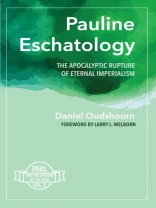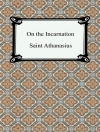When seeking to understand what Paul and his coworkers were trying to accomplish, it is no longer possible to ignore Graeco-Roman cultural, economic, political, and religious beliefs and practices. Nor can one ignore the ways in which colonized and vanquished peoples adopted, developed, subverted, and resisted these things. Therefore, in order to properly contextualize the Pauline faction, the traditional background material related to Paul and politics must be developed in the following ways: Pauline eschatology must be examined in light of apocalyptic resistance movements; Pauline eschatology must be understood in light of the realized eschatology of Roman imperialism; and the ideo-theology of Rome (its four cornerstones of the household unit, cultural constructs of honor and shame, practices of patronage, and traditional Roman religiosity now all reworked within the rapidly spreading imperial cult[s]) must be explored in detail. This is the task of Pauline Eschatology, the second volume of Paul and the Uprising of the Dead. In it, we will witness how Pauline apocalypticism ruptures the eternal now of empire, and this, then, paves our way for the detailed study of Paulinism that follows in volume 3, Pauline Solidarity.
关于作者
Daniel Oudshoorn is a father, lover, fighter, friend, and failure. He has spent more than twenty years actively pursuing life and mutually liberating solidarity in the company of the oppressed, abandoned, dispossessed, colonized, and left for dead.







![的封面 Brian Schrag & Julisa Rowe: Community Arts for God's Purposes [Chinese] 貼近神心意的社群藝術 的封面 Brian Schrag & Julisa Rowe: Community Arts for God's Purposes [Chinese] 貼近神心意的社群藝術](https://static.worldofdigitals.com/thumb_webp/740/9781645083740.webp)




